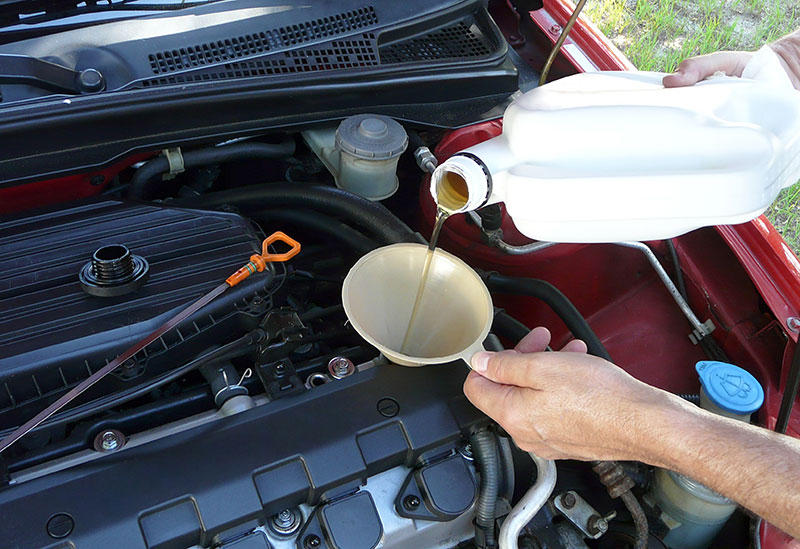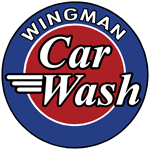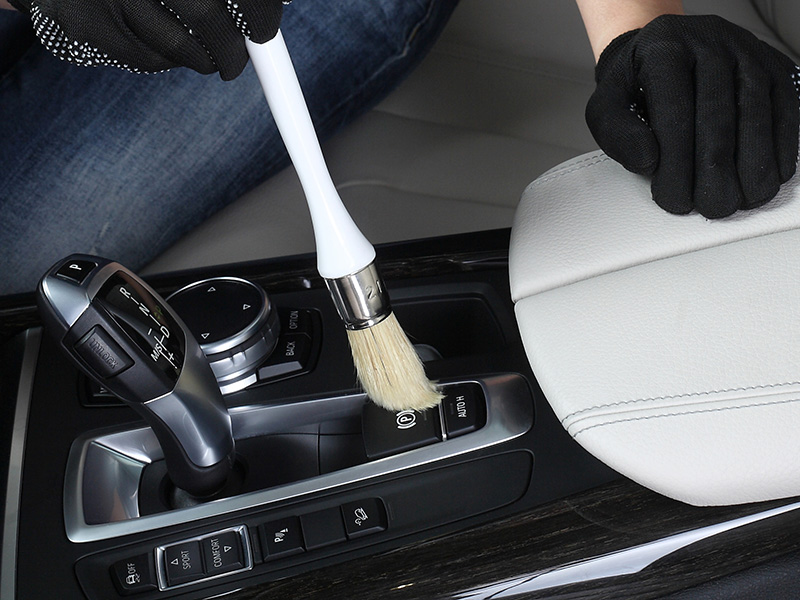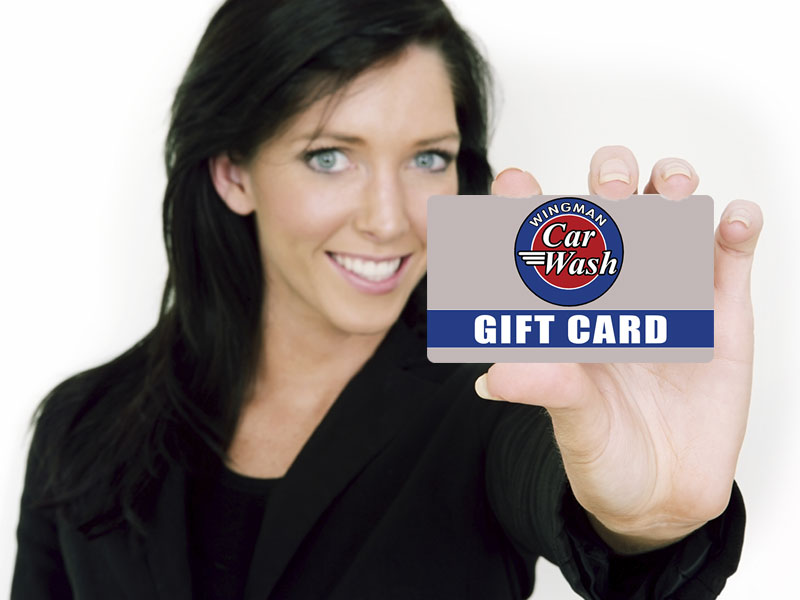Oil & Lube
Full Service Oil Change
With 25 Point Inspection
Conventional oil starting at $52.50
Full synthetic oil starting at $87.00
With 25 Point Inspection
Full synthetic oil starting at $87.00

Engine Oil is the life blood of your vehicle. It must be changed regularly in order to keep the engine and other systems operating just as well as when it was driven of the show room floor. Wingman provides a full service with every oil change we do.
It is our aim to provide quick, effecient and affordable service you will enjoy when your vehicle is due for a service. Wingman hopes to keep your vehicle running so well you feel confident driving it yourself mile after mile or even lending it to your children or a friend.
Wingman's highly trained technicians use only top quality lubricants and products keeping your vehicle's needs at the forefront of any serviced provided.
25 Point Inspection Includes
- Engine Oil Up To 5 Quarts
- Oil Filter
- Checking & Topping of if Necessary
- Chassis Lubricant
- Tire Pressure
- Washer Solvent
- Transmission Fluid
- Cabin Filter (replacement added cost)
- Fuel Filter (replacement added cost)
- Belts
- Coolant
- Power Steering Fluid
- Clutch Reservoir
- Differential - Front & Rear Transfer Case
- Engine Air Filter (replacement added cost)
- Hoses
- Wiper Blades (replacement added cost)
- Battery When Needed
Batteries
We can help you choose the right battery for your vehicle and lifestyle. Our staff can safely and professionally install your battery and get you back on the road.
Your car's electrical system powers everything from the ignition and fuel systems to accessories such as your radio, headlights and wipers. The electrical system is, in turn, powered by the engine. Here are the three key components of the electrical system:
- Battery: When your car's engine is off, the battery provides the required power to the rest of the system, as well as during start-up (cranking). It also supplements the power from the charging system during periods of high demand.
- Charging System: This is the heart of the electrical system. It consists of three main components: the belt-driven alternator, various electrical circuits, and a voltage regulator. The alternator supplies power to the electrical system and recharges the battery after your car has started. Just like it sounds, the voltage regulator controls the voltage, keeping it within the operating range of the electrical system.
- Starting System: This system consumes more electrical power than any other in your car. The starting system consists of three components which work in tandem: the ignition switch, the starter relay or solenoid, and the starter motor. The ignition switch controls the starter solenoid, which activates the starter motor. The starter motor then turns the engine until your car starts.
Cooling System Maintenance
Engine Coolant/Antifreeze is designed to help prevent freezing or overheating of the engine. Without this fluid, the engine would not remain in safe operating ranges, possible causing damage. This fluid also lubricates the internal parts of the cooling system such as the radiator, water pump and heater core. Over time and use, coolant/antifreeze becomes contaminated and corrosive. In addition, important additives are consumed.
Wingman technicians remove the old coolant antifreeze( by QuikDraw Machine or draining if necessary) and install new fluid. This new fluid meets or exceeds the manufacturer's specifications.
Your coolant should be serviced regularly to
- Restore system lubrication & critical additives
- Remove damaging contaminants
- Prevent internal corrosion
- Significantly extend the life of the radiator, water pump, heater core, and engine
Wingman recommends changing your coolant every 3 years or 50,000 miles, whichever comes first. The price for the service is $74.99.
This service takes little to no additional time if done during Oil Change. It can also be done in between services and will take five to ten minutes to complete.
This mileage interval is based on extensive research showing that preventetive mainenance will dramatically increase the life and usability of your vehicle. It will also cut down on expensive repairs down the road.
State Inspection
Is it time for your state inspection? A lot of people don't think about when their inspection is due because it is something you only have to take care of once a year. So take a moment and check your sticker.
The best way to prepare for a vehicle inspection would be to visit the DPS vehicle inspection website at www.txdps.state.tx.us/rsd/vi/inspectionCriteria.aspx and in the selection box, select the item of inspection you are wondering about. It will tell you the reason as to why the item will pass or fail inspection. If you do this and there are corrections to be made, you can make those corrections before the inspection making your inspection quicker and worry free.
The most common items that fail a vehicle but not limited to, are, wipers, Tires-wear indicators contacting the ground or wearing on edge the to the point that cord is showing, license plate light(s) burned out, blacked out or painted tail lights and last but not least, the parking/emergency brake. Most people do not know how to properly test thier parking brake. In order to test it according to DPS is to apply the parking brake place the vehicle in Drive and accelerate to approximately 1000 RPM. The vehicle should not move. For vehicles with a manual transmission, a properly working parking brake should choke the vehicle down to almost stalling it. Diesel trucks are also required to have a muffler.
Inspection stations are not setup like vehicle registrations. We cannot lookup on the computer to see if you have insurance. You must provide us with a physical insurance ID card that is in effect at the time of inspection. The ID card must contain, your name, address, vehicle, VIN #, start and expiration date. If you do not have one, you may contact your insurance company and have them fax us a copy.
We inspect all types of vehicles including cars, motorcycles, scooters, trailers and RV's. RV's are limited to 24,000lbs, anything over that must be truck inspection station. Inspections CAN be done in the rain, despite some stations declining to do them. If your vehicle does not pass inspection, PLEASE do not ask our inspectors to go ahead and put a sticker on your vehicle anyway. There are very, very stiff penalties for doing something like that.
If you have an questions, comments or concerns you may contact DPS vehicle inspections at 512-424-7010.
DPS sets the price for vehicle inspections. The cost for an inspection is $7.00. For an out-of-state vehicle, the cost is one dollar more. Out-Of-State cars are provided with a VI-30 sheet which allows the vehicle to be registered at any DPS office.
Transmission Maintenance
Transmission fluids are oil-based fluids with chemical additive packages. Pressure changes in the transmission fluid cause the vehicle to shift gears. Over time and use, transmission fluid becomes contaminated and the additives are used up. This can cause inefficiency, rough or slow shifting and ultimately reduce the life of the transmission.
Wingman technicians remove the transmission fluid from the transmission (either by draining or evacuating the fluid) and install new fluid that meets or exceeds manufacturer's specificaions.
Your transmission fluid should be serviced regularly in or to:
- Replenish critical additives
- Remove damaging contaminants
- Improve shifting and smoothness
- Significantly extend the life of your transmission
Wingman Recommended Service Interval 15-30k miles. This mileage interval is based on extensive research showing that preventetive mainenance will dramatically increase the life and usability of your vehicle. It will also cut down on expensive repairs down the road.
$74.99 for most vehicles Automatic or Standard
Wheel Balance
Often confused with wheel alignment, a properly balanced wheel is a beautiful, perfectly tuned wheel-tire combination. This is accomplished by placing measured lead weights on the opposite side of the "heavy spot"—the noticeable tread wear on your unbalanced tire.
How do I know if I need my wheels balanced?
Is your vehicle vibrating at certain speeds, say, between 50 and 70 mph? If so, chances are your wheel is out of balance. One section of your tire is heavier than the other because it's endured more exposure to the friction and heat of the road. Come in for prompt, professional service—most people are very satisfied with the difference such a simple and inexpensive procedure makes. Look for these signs, and if you find either one, come see us:
- Scalloped, erratic wear pattern on tires.
- Vibration in steering wheel, seat, or floorboard at certain speeds.
Transfer Case
The Transfer Case, found on four-wheel drive and all-wheel drive vehicles, allows the engine's power to be used by both drive axles simultaneously. The transfer case fluid lubricates the unit. This fluid becomes contaminated by normal usage (whether four-wheel is used or not) and limits lubrication, reducing the life of the transfer case.
Wingman technicians remove the old transfer case fluid (usually by draining) and install new fluid. This new fluid meets or exceeds manufacturer's specifications.
Your transfer case fluid should be serviced regulalry in order to:
- Remove damaging contaminants
- Replenish critical additives
- Promote reliable four wheel drive operation
- Significantly extend the life of the Transfer Case
- Wingman reccomends servicing the Transfer Case every 30,000 miles.
$89.99 for most vehicles
Fuel Filter Replacement
The Fuel Filter is crucial to the operation of the vehicle. It removes particles from the fuel which could clog the fuel injectors. When a fuel filter becomes dirty, fuel no longer flows freely, reducing power and mileage. If left unchanged, a clogged filter can even prevent the engine from running. Some filters do have a "bypass system" if the filter becomes saturated. This ensures the engine continues receiving fuel, but it does allow contaminants into the injectors, possibly causing further damage.
Wingman technicians remove the old fuel filter and install a new filter
Your Fuel Filter should be changed regularly to:
- Ensure consistent acceleration and performance
- Increase engine efficiency and mileage
- Prevent injector clogging and engine failure
Wingman recommends replacing your fuel filter every 30,000 miles for gasoline engines and every 15,000 for diesels
$29.99 for most vehicles and an additional $5.00 for a fuel injector cleaner when added to a fuel filter service
Air Filter
The engine air filter cleans air that the engine uses to combust fuel. Without proper air flow into the engine, combustion is inefficient and emissions are increased. Without proper filtering, abrasive debris can get into the engine causing wear bearings, piston rings, and cylinders. A dirty air filter can reduce power, performance and gas mileage. It will also shorten the life of the engine.
Cleaning a dirty air filter is not recommended. High pressure air can damage the filter paper and allow larger particles to enter the engine. "Shaking it out" only removes surface debris but most filtering is embedded inside the paper which will still be clogged.
Your air filter should be changed regularly to:
- Increase engine efficiency and gas mileage
- Reduce harmful emissions and engine damage
- Extend the life of the engine
Wingman Recommends Replacement Upon Visual Inspection
Cabin Air Filter
Cabin Air FIlters effectively trap pollutants, pollen, dust, and exhaust fumes, before they reach the interior of your vehicle.
Like your household air-conditioning system, your cabin air filter needs to be serviced on a regular basis to keep your vehicle's heating and cooling system operating at its peak condition.
Dirty cabin air filters restrict clean air flow through your vehicle's ventilation system, preventing optimal operation of your defrost, heating and cooling systems.
A new cabin air filter removes up to 99.5% of allergens and pollutants before they get into the vehicle and before they can be inhaled by the driver and passengers.
$29.99 for most vehicles
Differential Service
A Differential contains gears which convert power from the transmission/ driveshaft to the axle, allowing the wheels to turn. Differential fluid protects the moving metal surfaces from, heat and wear. Over time, the heat breaks down the fluid eventually causing metal to metal contact, possible causing damage.
Wingman technicians remove the old differential fluid (by draining or evacuation) and install the new fluid. This fluid meets or exceeds manufacturer's specifications.
Your differential fluids should be serviced to:
- Reduce friction and wear
- Reduce shock and vibration
- Replenish critical additives
- Significantly extend the life of the differential
Wingman recommends this fluid be changed 15-30k miles depending on manufactuer
Power Steering
Power steering fluid is constantly active. It creates the high pressures needed to steer your vehicle, it lubricates the pump and valves and it conditions the rubber parts in the system. Over time and use the fluid wears out, decreasing the necessary pressure, limiting lubrication and protection, and becoming contaminated, possibly causing damage.
Wingman technicians remove the old power steering fluid by cycling new fluid through the system. This new fluid meets or exceeds manufacturer's specifications.
Your power steering fluid should be serviced regularly in order to:
- Minimize the development of leaks
- Remove damaging contaminants
- Replace critical additives that have been lost
- Restore system efficiency
- Significantly extend the life of the system
Wingman recommends your power steering fluid be changed every 30,000 miles.
This mileage interval is based on extensive research showing that preventetive mainenance will dramatically increase the life and usability of your vehicle. It will also cut down on expensive repairs down the road.
$89.99 for all vehicles
Oil System Cleaner
Oil System Cleaner is an oil-based butyl solution which safely removes sludge and varnish deposits from inside the engine. Sludge buildup is known to cause approximately 50% of all engine failures. Oil System Cleaner dissolves buildup, so it will not clog the oil pump or filter. Oil System Cleaner minimizes contamination, reduces pressure on the oil pump and increaes efficiency. It extends the life of the engine and allows a better drain of old oil, enabling your Wingman technician to put clean oil into a clean engine.
Wingman technicians install Oil System Cleaner into the engine. The engine must run for 3-5 minutes and then the oil is drained, removing the dissolved sludge and varnish with the old oil.
Your oil system should be cleaned regularly to:
- Keep the engine free of sludge and varnish
- Reduce pressure and increase efficiency
- Extend the life of the engine
- Oil System Cleaner does not contain kerosene or alcohol
Wingman recommends this service every 9,000 miles
$10.99 for regular cars $21.98 for diesel trucks
Unlimited Wash Plan Members Members can wash their vehicle every day for as little as $19.99 per month, REALLY!



